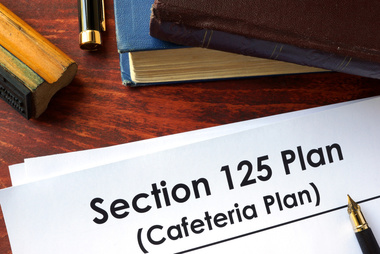How Do 125 Plans and HSAs Work Together?
A cafeteria plan is a reimbursement plan governed by IRS Section 125, allowing employees to contribute a certain amount of their gross income to a designated account or accounts before taxes are calculated. Another kind of plan is the health savings account, which lets employers and employees make tax-free contributions to pay for certain out-of-pocket medical expenses.
Can these two plans work together to maximize their benefits to a company and its workers? Yes, if it’s done right. If you decide to offer a Section 125 plan and an HSA to employees, you’ll need to include the plans as part of your annual enrollment period so that eligible employees can sign up, maximize use of your benefits and save money on taxes.

You can withhold employee pretax earnings and have employees contribute them to their HSA. This is a cafeteria plan — the funds are the employee’s and are a part of his or her paycheck. You enable the contribution through your payroll system.
There are numerous benefits to cafeteria plans. Among the advantages of saving in an HSA is that cafeteria plans reduce the amount of taxes paid by employees. Employees file Form 8889 to be credited for income tax they paid. HSA contributions are taken automatically from paychecks, so by offering a cafeteria plan, you give employees pretax payroll deferrals to their HSAs. It’s inexpensive and can be an option for employees. You benefit by not having to pay payroll taxes on your employees’ HSA contributions.
- Employees can make HSA contributions through payroll deferral on a pretax basis.
- Employees may pay their share of insurance premiums on a pretax basis.
- You and your workers save payroll taxes.
Contributions to HSAs under Section 125 plans are subject to nondiscrimination rules — the plan cannot favor highly compensated or key employees. Violations generally do not result in plan disqualification, but the value of the benefit may become taxable for highly compensated or key employees.
If your goal is to save payroll taxes, then offering cafeteria plans governed by Section 125 for HSA contributions is the way to go. With a small additional investment of money and time, you can add a Section 125 plan allowing for pretax deferrals. Besides, you save on your share of payroll taxes for the pretax amounts taken, which will likely offset the costs of setting up the plan.
Employees keep a larger slice of their earnings, while you benefit by not having to pay payroll taxes on the employees’ HSA contributions. HSA contributions aren’t counted as income for federal and, in most cases, state income taxes.
BASIC’s HSA @ AnyBank allows employers to offer an HSA through any financial institution of the employee or employer’s choice. We can even accommodate your employees each having different financial institutions. With BASIC as your administrator, you benefit from our knowledge and expertise of how FSA and HSA interact when offered together. BASIC provides complete compliance assurance and exceptional customer service.
- We monitor the contribution amounts of employees and employers in order to ensure that they do not exceed annual contribution limits.
- We facilitate those payroll contributions made by the employee and/or employer.
- We advise employees on their eligibility as well as what purchases or services are HSA eligible.
- We advise employees turning 65 on how Medicare affects HSA eligibility.
- We are able to administer our HSA with other plans such as Limited Purpose Medical FSA, Dependent Care, HRA, Parking and/or Transit, as well astransitioning from General Purpose Medical FSA to HSA.
To request a proposal on our HSA @ AnyBank option, click here!